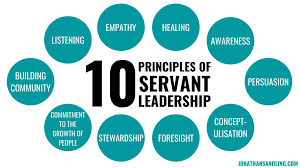7 Leadership Traits That Will Help You Be A Better Leader
As a leader, it’s important to posses certain traits in order to successfully motivate and lead your team. Here are seven leadership traits that will help you be a better leader:
1. Demonstrate Passion for the Goal
Leadership is all about inspiring others to achieve a common goal. If the goal is something you truly believe in, then it’s much easier to get your team on board. Show excitement and enthusiasm for what the team is working towards, and let them know why it matters to you.
2. Be Clear and Concise
When communicating with your team, make sure that everything is clear and concise. This will help your team understand what needs to be done, and minimize confusion or misunderstandings.
3. Encourage Cooperation
Encouraging cooperation among your team members is essential for success. It allows everyone to work together harmoniously toward a common goal, while maintaining individual responsibility. Let your team know that you value their contributions, and reward them accordingly.
4. Set Standards and Expect Results
Setting standards for yourself and your team is an important part of leadership. It helps ensure that everyone is held accountable for their actions, and provides a set of guidelines for progressiveness over time. establish clear expectations for how each member should behave, and be willing to punish those who don’t meet them..
5 . Build Trust
Building trust among your team members is essential for success. It allows them to feel safe sharing ideas and concerns with
essay about leadership
Leadership is a skill that can be learned. There are many different leadership traits that can help you be a better leader. These seven traits will help you be a good leader, and have a more successful career:
1. Have Patience
It takes time to become a good leader. Don’t expect to be a great leader overnight. Be patient with yourself, and with your team. Leaders need to have the ability to stay calm under pressure, and know when to give orders and when to let their teams take the lead.
2. Be Visionary
Leaders need to be able to see far into the future, and understand what needs to be done in order to reach their vision. They need to be able to make tough decisions, and set goals that are ambitious but achievable.
3. Have charisma
The ability to command respect is key for any leader. Make sure you have charisma, both verbally and non-verbally. Be confident in yourself, and project that confidence onto your team. charismatics are often able to connect with others on an emotional level, which can lead to trust and cooperation.
4. Have Strong Communication Skills
Good leaders communicate effectively with their team members, both verbally and non-verbally. They know how to keep everyone informed of what’s going on, and they make sure everyone understands the company’s strategy and objectives.
5. Lead By Example
A good leader leads by example. They set the
leadership in schools

Leadership in schools is a complex process that requires careful planning, execution, and continual evaluation. Here are seven leadership traits that will help you be a better leader:
1. Communicate Clearly and Effectively
The key to effective leadership is communication. You must be able to effectively communicate your goals and objectives to your team members, as well as relay information to stakeholders. Be sure to use clear language so everyone can understand what you are saying. Additionally, make sure that your communication is timely and relevant. If you don’t have the latest information, your team members likely won’t either.
2. Build Rapport and Trust
Building rapport and trust with your team is essential to leading them successfully. Start by being genuine and friendly, and make sure that you listen carefully. Try not to come across as pushy or bossy; instead, be directive but approachable. It’s also important to set clear expectations and ensure that everyone understands them. If there are any discrepancies or misunderstandings, work to resolve them quickly and diplomatically.
3. Foster Collaboration and Cooperation
In order to achieve successful outcomes, it is essential for leaders to foster collaboration and cooperation among their team members. Encourage open discussion and dialogue; strive for consensus when possible. This will create a cohesive unit that can take on challenges head-on. Additionally, make sure that everyone has access to the resources they need in order to succeed (e.g., information, tools,






